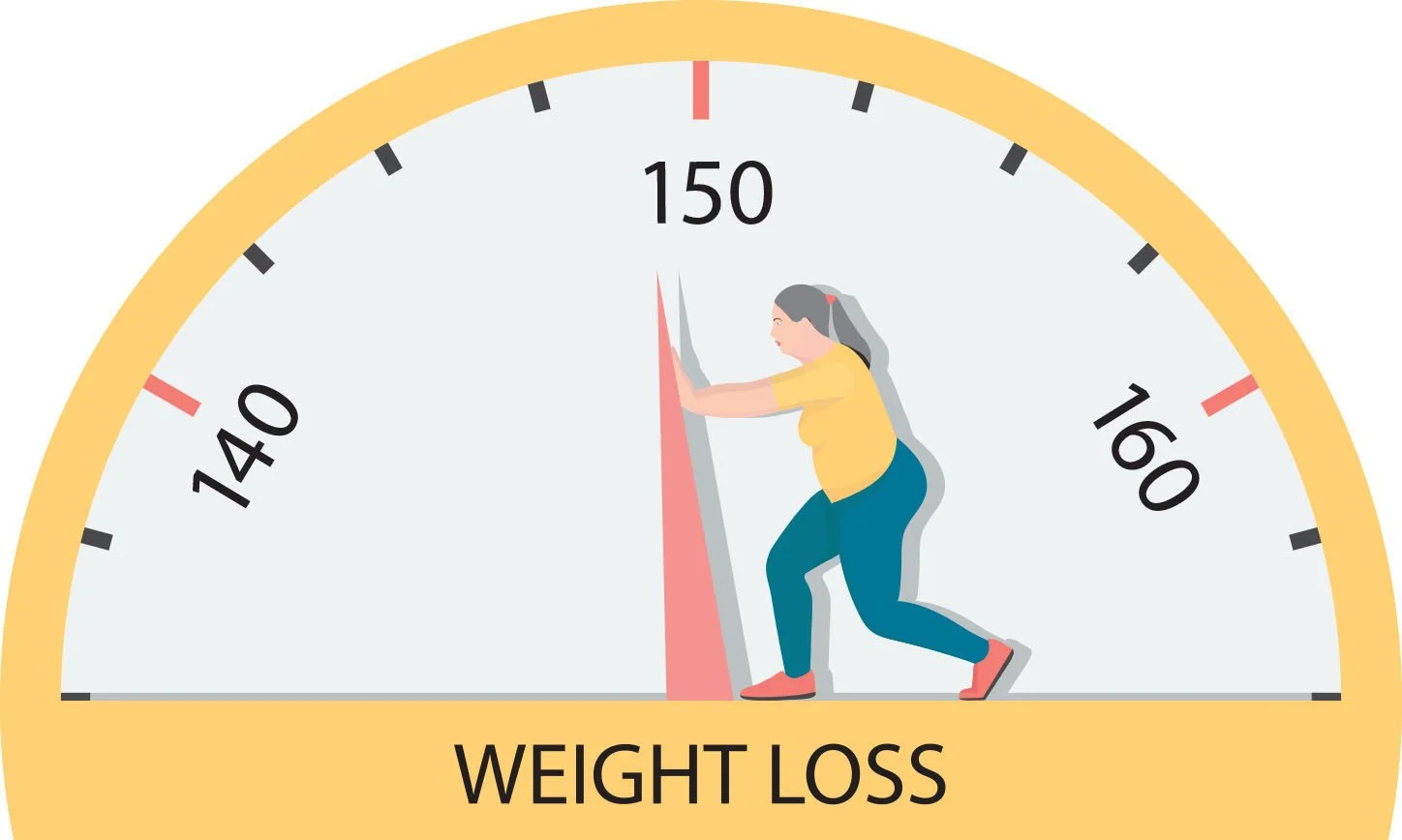GLP-1 information
What is Semaglutide/Tirzepatide?
Semaglutide & Tirzepatide is an injectable medication which, when used in combination with diet and exercise, helps with blood sugar control in type 2 diabetics. Semaglutide & Tirzepatide belongs to a class of medications called glucagon-like peptide-1 (GLP-1) agonists, which mimic the hormone GLP-1 in your body to lower blood sugar IeveIs after you've eaten a meal and increase satiety.
How does Semaglutide & Semaglutide work for weight loss?
GLP-1 agonists like Semaglutide help to control your blood sugar, but people taking them also tend to lose weight. GLP-1, the hormone involved, slows down how fast your stomach empties food and in addition to causing fullness, it causes your pancreas to release insulin, and also blocks a hormone that causes your liver to release sugar. Together, these functions can help you feel less hungry, causing you to eat less food and lose weight.
Does Semaglutide & Tirzepatide curb your appetite?
Yes, Semaglutide & Tirzepatide helps curb your appetite. In addition to slowing gastric emptying to make you feel full longer. GLP-1 also plays a direct role in how appetite is regulated.
How long does it take to lose weight on Semaglutide or Tirzepatide?
Most (more than 95%) people see changes as soon as the first one-two weeks! Although weight loss can not ever be guaranteed by any medication, results on Semaglutide & Tirzepatide have been shown to be 3X greater than oral pills on the market today.
How long should you take Semaglutide for weight loss?
Study participants received treatment for a period of 68 weeks (about 1.5 years) during each of the four trials conducted by the company.
Everyone is a little different. Your doctor will follow your progress and tailor the duration to your progress and needs.
What is the starting dose of Semaglutide & Tirzepatide for weight loss? All patients start on the lowest dose of Semaglutide at 0.25mg or Tirzepatide 2.5mg injected subcutaneously into belly fat every week. As tolerated or needed, patients can increase as tolerated (slower if nauseous). Dosing will not be increased until cleared by one of our providers.
Is Semaglutide and Tirzepatide a type of insulin?
No, Semaglutide & Tirzepatide are not a type of insulin or a substitute for insulin. They does stimulate your pancreas to release insulin when glucose (sugar) is present. Because Semaglutide & Tirzepatide relies upon your body's own insulin to have this effect, they aren’t used when your pancreas can't make insulin, such as in patients with type-1 diabetes.
Is Semaglutide & Tirzepatide a stimulant?
No, Semaglutide & Tirzepatide are not stimulants. While other weight loss medications, like phentermine, have stimulating effects that help curb your appetite, GLP-1’s works differently (see above).
Is Semaglutide & Tirzepatide safe?
Yes. Semaglutide & Tirzepatide is considered to be safe and effective when used as indicated. However, safe doesn't mean there aren't risks. Semaglutide also carries a boxed warning about thyroid C-cell tumors occurring in rodents (with unknown risk in humans). Semaglutide shouldn't be used if you or your family have a history of certain thyroid cancers. Semaglutide should not be to treat people with type-1 diabetes or a history of pancreatitis. Semaglutide should be used cautiously for people on other blood sugar lowering medications.
Is Semaglutide & Tirzepatide covered by my insurance?
We are an elective program and do not accept insurance, however sometimes HSA funds are approved for weight loss.
What are the known side effects of Semaglutide &Tirzepatide?
The common side effects of Semaglutide are:
Nausea
Vomiting
Diarrhea
Stomach pain
Constipation
Effects like nausea and diarrhea being the most common.
Are there any significant health risks associated with using Semaglutide & Tirzepatide?
Yes. Semaglutide & Tirzepatide may cause rare side effects, including:
• Prolonged vomiting. Patients on Semaglutide & Tirzepatide can develop gastroparesis where the stomach stops moving, and patients vomit considerably. This can lead to dehydration and electrolyte imbalances. Stop using Semaglutide or Tirzepatide and call your healthcare provider right away if you have vomiting that persists for more than a day.Inflammation of your pancreas (pancreatitis). Stop using Semaglutide & Tirzepatide and call your healthcare provider right away if you have severe pain in your stomach area (abdomen) that will not go away, with or without vomiting. You may feel the pain from your abdomen to your back.
Changes in vision. Tell your healthcare provider if you have changes in vision during treatment with Semaglutide & Tirzepatide
Low blood sugar (hypoglycemia). Your risk for getting low blood sugar may be higher if you use Semaglutide & Tirzepatide with another medicine that can cause low blood sugar, such as a sulfonylurea or insulin. Signs and symptoms of low blood sugar may include: dizziness or lightheadedness, blurred vision, anxiety, irritability or mood changes, sweating, slurred speech, hunger, confusion or drowsiness, shakiness, weakness, headache, fast heartbeat, and feeling jittery.
Kidney problems (kidney failure). In people who have kidney problems, diarrhea, nausea, and vomiting may cause a loss of fluids (dehydration), which may cause kidney problems to get worse. It is important for you to drink fluids to help reduce your chance of dehydration.
• Serious allergic reactions. Stop using Semaglutide & Tirzepatide and get medical help right away if you have any symptoms of a serious allergic reaction, including swelling of your face, lips, tongue, or throat; problems breathing or swallowing; severe rash or itching; fainting or feeling dizzy; or very rapid heartbeat.

